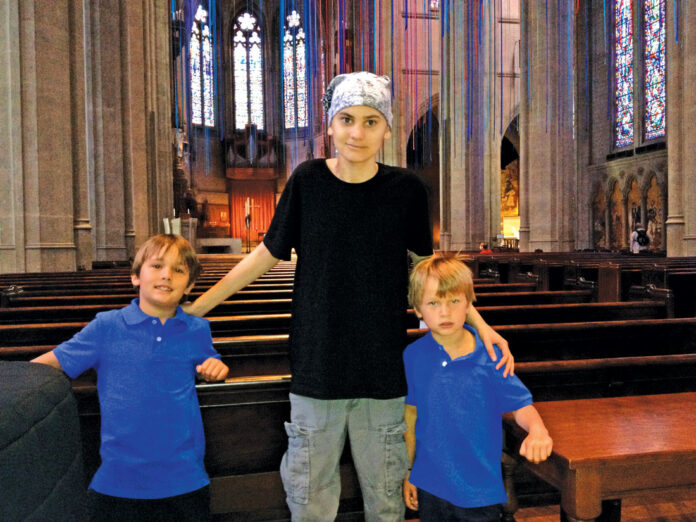
A prominent cancer research organization announced last week that scientists have discovered some promising treatment for pediatric brain cancer, and the studies were funded in part by the local McDowell Charity Trust.
Scientists at Sanford Burnham Prebys Medical Discovery Institute announced May 18 that recent studies show that combining immunotherapy with a drug known as tumor necrosis factor eradicated a deadly type of pediatric brain tumor in mice. The discovery is expected to lead to a clinical trial to test the treatment in patients, reads a press release from the Sanford Burnham Prebys institute.
Researchers found the drug treatment effectively “removes the ‘invisibility cloak’” from pediatric brain tumors known as medulloblastoma. The findings also potentially hold implications for other cancers that do not respond to immunotherapy.
“I’ve studied medulloblastoma for more than 20 years. I’ve seen many therapies that prolong survival in mice. But this is the first time I have ever seen a therapy essentially melt the tumor away,” says Robert Wechsler-Reya, Ph.D., senior author of the paper. “We look forward to testing this approach in the clinic and are hopeful that this discovery might be able to save children’s lives.”
Rider and Victoria McDowell, creators of the McDowell Charity Trust and the Betabel Road project south of Hollister, might be as excited about the new research findings as those who conducted the study. They created the McDowell Charity Trust after their son, Errol Cross McDowell, who died of pediatric brain cancer in 2018. They created the charity trust as an effort to fund pediatric cancer research.
Errol was 18 when he died of medulloblastoma.
“This is an amazing development in the fight to cure pediatric cancer,” said Rider and Victoria McDowell. “But bittersweet. We were so close to curing our beautiful Errol. So close. Hopefully this breakthrough will now save other boys and girls and prevent their families from the unbearable pain of losing a child to cancer.”
Medulloblastoma is the most common type of cancerous brain tumor found in children. It is highly malignant and kills between 300-400 people per year.
The standard treatments for the disease are surgery, whole brain and spine radiation and intensive chemotherapy, according to Sanford Burnham Prebys. Although these aggressive treatments can cure some patients, those who survive often suffer devastating long-term side effects, including intellectual disabilities, hormonal disorders and an increased risk of developing cancer later in life. Scientists have been striving to use immunotherapy, which harnesses an individual’s immune system to destroy the cancer, as a safer and more effective treatment for medulloblastoma.
The McDowell Charity Trust has donated millions of dollars to pediatric cancer research in recent years, Rider McDowell said. Most of the family’s assets will be donated to the cause when Errol’s parents die.
The Betabel Road project, proposed on Highway 101 south of Hollister, is inspired by a 1950s-era California roadside stop, with wooden barns, local produce, a service station with gas and diesel and a vintage motel. Rider McDowell said the project promises 75-100 new jobs, up to $1 million in county tax revenue, essential highway services and no new housing.
All profits from the project would go toward pediatric cancer research, he added.
The McDowells hope last week’s news about a potentially breakthrough treatment for medulloblastoma will convince the local public that they are serious about treating and curing the type of cancer that killed their son.
Wechsler-Reya added, “Twenty-three months after Errol’s death from medulloblastoma, research funded in a significant part by the McDowell Charity Trust (and Errol’s charity Canceragogo) has led to a promising new treatment for this terrible disease and a drug that may help the body’s immune system recognize and kill cancer cells. Errol can look down with pride. His life will make a difference to the thousands of children who will contract this disease over time.”









